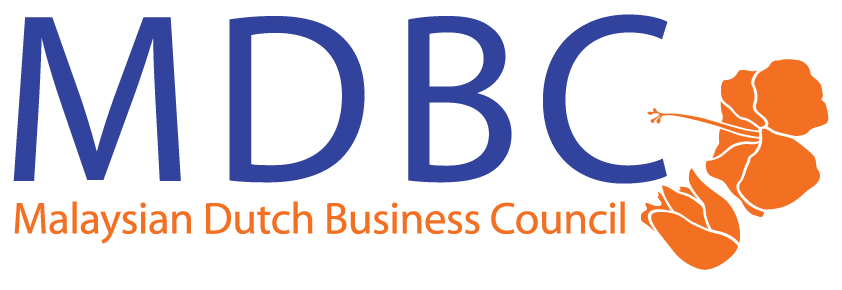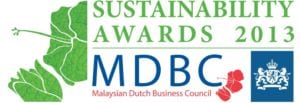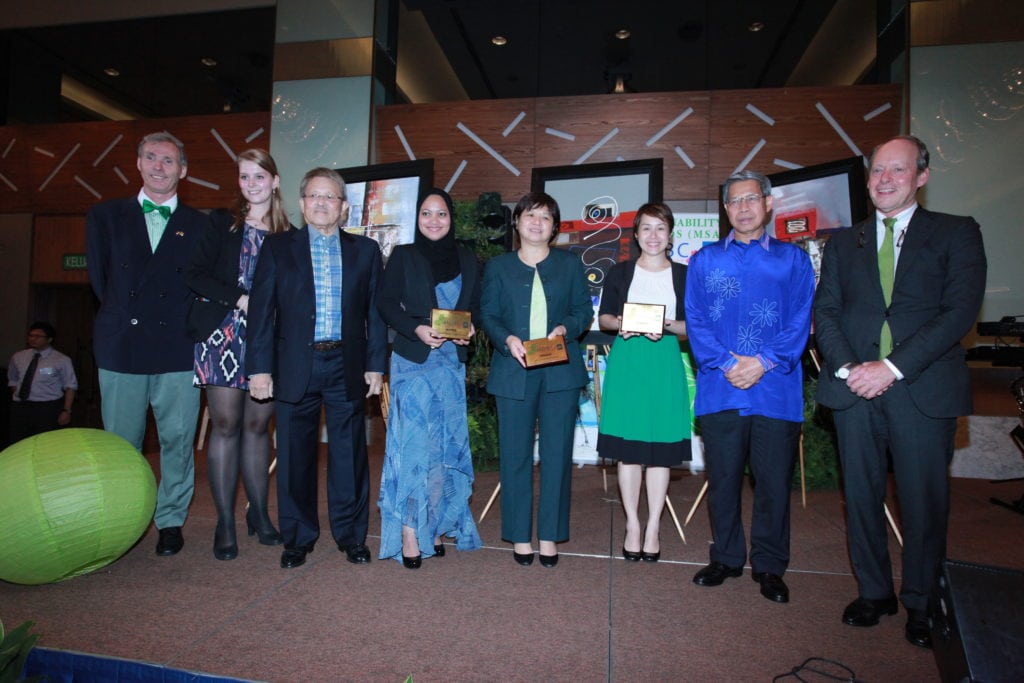2013 Categories
Please note that as always, the expert panel of MSA Judges have the right to move a participant from one category to another if the judges believe that a different category is more appropriate / applicable. For more information on the Judges of MSA 2013, please see the Judges panel.
The award categories for MSA 2013 were:
- Best Sustainability Communication
Sustainable business practices are becoming more important and communications (both internal and external) plays a vital part in any sustainability strategy. Internally: Your employees are part of the very green / C(S)R conscious public. Once engaged, they are eager to participate in and advocate for your sustainability efforts. Without internal communication, you won’t be able to implement the change necessary to make your organization more sustainable. Externally: Customers, (potential) clients, suppliers, partners and the general public all become more environmentally conscious. A company’s sustainability strategy becomes part of its identity and branding and has to be communicated as such. Communication about an organization’s sustainability efforts drives engagement and public awareness. Going beyond a company’s CSR report or green reporting, sustainability communication is about educating your internal and external stakeholders as well as the wider community about your sustainability initiatives in an engaging, compelling manner. - Best Corporate Government & Ethics
Corporate Governance is not just relevant for public listed companies; all companies have a responsibility to observe the highest standards of transparency, accountability and integrity. Boards, shareholders, management and directors must embrace the understanding that good business and procurement is not just about achieving the desired financial bottom line by being competitive, but by also being ethical and sustainable. They have a duty to be effective stewards and guardians of the company, not just in setting strategic direction and overseeing the conduct of business, but also in ensuring that the company conducts itself in compliance with laws and ethical values, maintaining an effective governance structure to ensure the appropriate management of risks and level of internal controls. A company’s own internal codes and procedures are critical in fostering a strong culture of corporate governance. - Best Sustainable Workplace
Creating a sustainable workplace includes technical and human elements. Reducing, reusing and recycling will not only help the environment, but can also decrease operation costs, eliminate waste and support greater efficiency. A more complete approach to having a sustainable workplace includes HR and safety policies. Employees need a safe, healthy and natural work environment. Allowing for flextime, working remotely, carpooling, mental breaks, teambuilding, etc. and educating the employees on the company’s CSR and sustainability activities can develop their engagement and productivity. It will also strongly support your HR recruitment efforts. - Best Sustainable Supply Chain Management or Logistics Project (Members and non – members)
Sustainability in the supply chain is increasingly seen as a business development tool and essential to delivering long term profitability. More companies are extending their commitment on responsible business practices to their value chains. Sustainable supply chain management can be a strong driver of value and success – for business as much as for society. A sustainable supply chain, in the long-term, equips a company to respond to rapidly evolving customer demand by increasing innovation, flexibility and quality, while avoiding customer dissatisfaction and supply disruptions, mitigating reputation risks, and avoiding regulatory barriers.A smaller part of the supply chain is logistics. The main objective is to co-ordinate activities in a way that meets customer requirements at minimum cost. As concern for the environment rises, companies must take more account of the external costs of logistics associated mainly with climate change, carbon footprint, air pollution, noise, vibration and accidents. The ideal situation would be reducing these externalities and achieving a more sustainable balance between economic, environmental and social objectives.Much progress has been made in defining supply chain sustainability and benchmarking tools are available that enable sustainability action plans to be developed and implemented.
These shortlisted companies for MSA 2013 were invited to present their projects during the MSA 2013 Day Program (which was open to the general public) for a Q&A session and final judging.
Please note: Shortlisted nominees are listed in alphabetical order; the order is NOT indicative of any ranking.
The shortlisted nominees and projects in the ‘Best Sustainability Communication’ category were:
* DoubleTree by Hilton Kuala Lumpur – Baked with CARE and Legends Cook for Care are two of DoubleTree by Hilton Kuala Lumpur’s CR initiatives Both are charity drives to raise funds for the Agathians Shelter by underprivileged boys.
* Philips Malaysia – SimplyHealthy@Schools is a prominent community involvement project aimed at helping children understand that the simple steps they take to improve their health and well being, and the environment, can make a huge difference to society.
* Unilever Malaysia – In 2010, Unilever announced the ambition of doubling the size of the company while halving their environmental impact, and increasing their positive social impact.
The shortlisted nominees and projects in the ‘Best Sustainable Workplace’ category were:
* AQ Malaysia– Even in times of crisis, AQ introduced benefits and invested in renovating their office so that it was conducive to work and provided a warm, comfortable environment.
* Malayan Banking (Maybank) – Maybank embarked on a strategic transformation journey to safeguard and maintain its leadership and pursue a new strategic path to be a leading regional financial services group in Asia.
* Shell Business Service Center– Shell Business Service Center (SBSC) created a sustainable workplace by taking a more complete approach and including both the technical as well as the human elements. Shell ensured this balanced approach by incorporating sustainability, health, and safety elements in the development of SBSC.
The shortlisted nominees and projects in the ‘Best Sustainable Supply Chain Management or Logistics Project’ category were:
* Besi APAC– Operating with the highest ethical standards and complying with all relevant laws and regulations, Besi set up a Corporate Sustainability program for Besi and the supply base focusing on the three key elements of People, Planet, and Profit.
* Guinness Anchor Berhad – Guinness Anchor Berhad (GAB) introduced a new Heineken bottle into the Malaysian market in 2011. With the new bottles it was necessary for GAB to change their existing crates. GAB worked with Heineken Group Supply Chain for new inner partitions to ensure that existing crates could continue to be used, cutting down on cost and saving plastic wastage.
* Intermovers Malaysia – Intermovers supplies quality customer care and uses sustainable equipment. They strive to keep outgoing costs minimal by a variety of methods and wherever possible, support local businesses for purchases of necessary products.
As always, the panel of judges consists of highly regarded, independent expert individuals. The panel once again consisted of the Chief Judge and two independent judges for each category.
After shortlisting entries to the top 3 in each category, judges do one final round of assessment during the MSA Day Program where each shortlisted nominee gives a presentation on their submission. Judges and audience members alike are allowed to ask questions of each nominee before category judges meet privately to confer and tally up the points.
Winners in each category are announced immediately after the Day Program at the MSA Awards Ceremony and Dinner. This announcement is inclusive of a Judges Report on the winner’s submission highlighting the underlying core concept of the MDBC Awards Program – the sharing of best practices which leads to an elevation in the understanding in the subject matter.
CHIEF JUDGE – H.E. Harry Molenaar
Ambassador, Embassy of the Kingdom of the Netherlands
Taking over as Chief Judge of the MSA, His Excellency Harry Molenaar aimed to continue building upon the success of the MSA and its focus on the sharing of best practices by MDBC member companies. Having started his career at the Ministry of Foreign Affairs in 1980, H.E. Harry Molenaar was posted to a range of locations including, but not limited to, Bangkok, Harare, Athens, Iraq, and the Ministry in the Hague, and in Malaysia.
BEST SUSTAINABILITY COMMUNICATION:
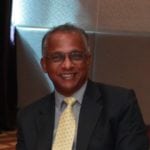
Managing Editor, The Sun
Balan has 35 years of experience as a journalist, most of which was spent with the New Straits Times where he served as its diplomatic columnists upon his retirement as Deputy Chief News Editor. He was the Managing Editor of The Sun at the time of MSA ’13.
***

Presenter & Producer, BFM 89.9
Meera graduated with a Business degree majoring in Accounting from RMIT University. After exploring investor relations & business development, Meera started off as a producer on the Bigger Picture segment, the ‘soul’ of BFM 89,9 in 2008. She subsequently moved on to be an Anchor Presenter.
BEST SUSTAINABLE WORKPLACE:

CEO, Malaysian Green Technology Corporation
Ir. Hadri’s most notable national contributions were the Malaysia’s Green Technology Policy and Malaysia’s Renewable Energy Policy and Action Plan. Ir. Hadri is widely recognized for his success in transforming solar and renewable energy industries in Malaysia and was the architect of the Malaysian feed – in – tariff.
***

CEO, Talentcorp Malaysia
Johan was previously the Principal Private Secretary to the Minister in the Prime Minister’s Department of Malaysia and has 18 years of experience in policy development, corporate finance, and accountancy. Trained as a chartered accountant, he is an Associate of the Institute of Chartered Accountants in England and Wales (ICAEW).
BEST SUSTAINABLE SUPPLY CHAIN MANAGEMENT OR LOGISTICS PROJECT:
JUDGE A – Rahul Colaco
Managing Director, Dutch Lady
Rahul Colaco has been leading Dutch Lady Milk Industries as Managing Director since 2012. Colaco started off as a management trainee at Hindustan Unilever in 1997, the largest FMCG organization in India, known for its training. After this, he continued with Unilever in different countries such as Italy and The Netherlands as Marketing or Operations Director.
***
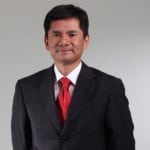
CEO, InvestKL
With more than 22 years of experience in the private sector, Datuk Zainal has held senior positions in multinationals, Malaysian companies, and start ups. Prior to joining InvestKL, he was the Group CEO of REDtone, a Malaysian public listed telecommunications provider. He was also one of the company’s founders.
